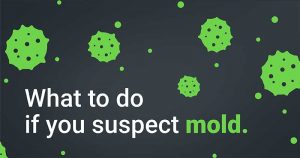Indoor Air Quality
The University of North Carolina at Chapel Hill is committed to providing a work environment that is free of recognized hazards and to investigation complaints that may be related to poor indoor air quality (IAQ). Though specific regulations have not been developed for IAQ in the work place, Environment, Health and Safety (EHS) considers recommendations from the American Conference of Governmental Industrial Hygienists (ACGIH), American Industrial Hygiene Association (AIHA) and the American Society of Heating, Refrigerating, and Air Conditioning Engineers (ASHRAE).
- Indoor Air Quality Policy
- Indoor Air Quality and Promoting Healthy Working Conditions in University Buildings (mold prevention)
- Indoor Air Quality and Promoting Healthy Living Conditions in Residence Halls (mold prevention)
- Request for Indoor Air Quality Investigation
- Request for Mold Investigation
- Cold Room Mold Remediation Standard Operating Procedure
- Cold Room Mold Prevention Checklist
- Mold Awareness for Building Occupants Training
Building Occupant Diary
Save this spreadsheet to your local computer and fill it out over the month. When it is complete, send the file to David Catalano.
- Do I have to visit the University Employee Occupational Health Clinic to get a report on an indoor air quality concern?
- If you believe there is a health concern related to the indoor environment, please schedule an appointment for a medical evaluation at the University Employee Occupational Health Clinic by calling 919-966-9119. Please also complete the Request for Indoor Air Quality Investigation form. It is important when completing the request that you provide as much detail as possible for the EHS Responder.
- When does an EHS Responder evaluate the area?
- The EHS Responder will review the Request for Indoor Air Quality Investigation form. Following the review of the form, the EHS Responder will call the person completing the form. At that time, further information will be gathered. The EHS Responder will determine what additional action is required, such as scheduling a site evaluation.
- I do not feel safe going back to my office or entering a building. What should I do?
- If you have continued concerns, you should check with your supervisor and/or Human Resource Facilitator.
- I smell a strong odor, what should I do?
- Call 911 or EHS at 919-962-5507. An Emergency Responder will come to the area to assess the hazard immediately.
- I am not sure what is going on but I feel bad when I am in a particular room, what should I do?
- Consult with your supervisor and/or Human Resource Facilitator about your concerns. Your supervisor and/or Human Resource Facilitator will evaluate your concerns, and then determine if/when EHS is needed for consultation. However, if you perceive that your work environment is causing a physical discomfort, then it is recommended that you go to the University Employee Occupational Health Clinic for a consultation.
- Best Practices of Microbial Growth Response in a University Setting
- Mold Information (Source: U.S. Centers for Disease Control and Prevention)
- Mold and Moisture (Source: U. S. Environmental Protection Agency)
- Should You Have the Air Ducts in Your Home Cleaned? (Source: U. S. Environmental Protection Agency)
- Statement on Building Dampness, Mold and Health (Source: California Department of Public Health)
Associated Departments:

